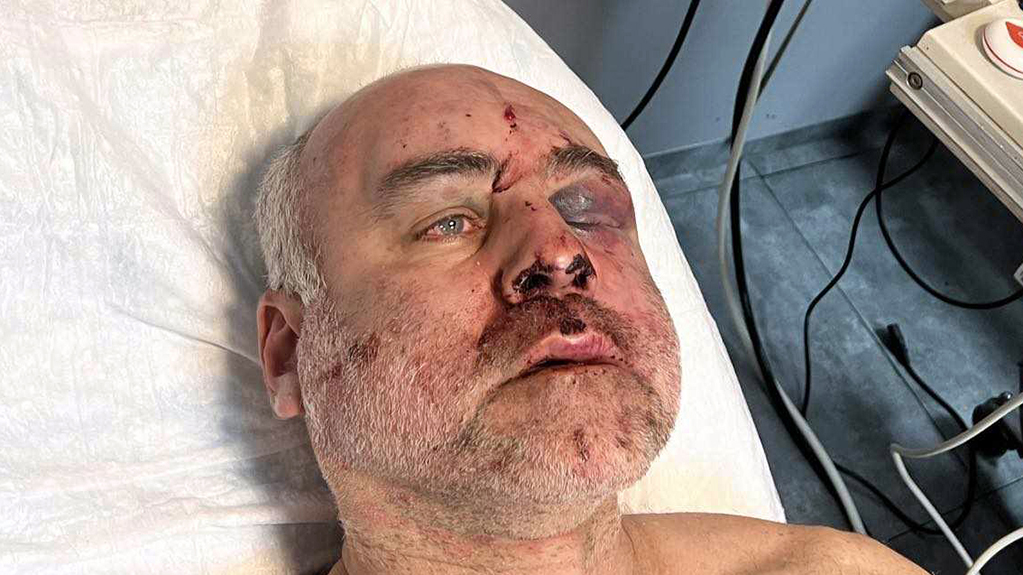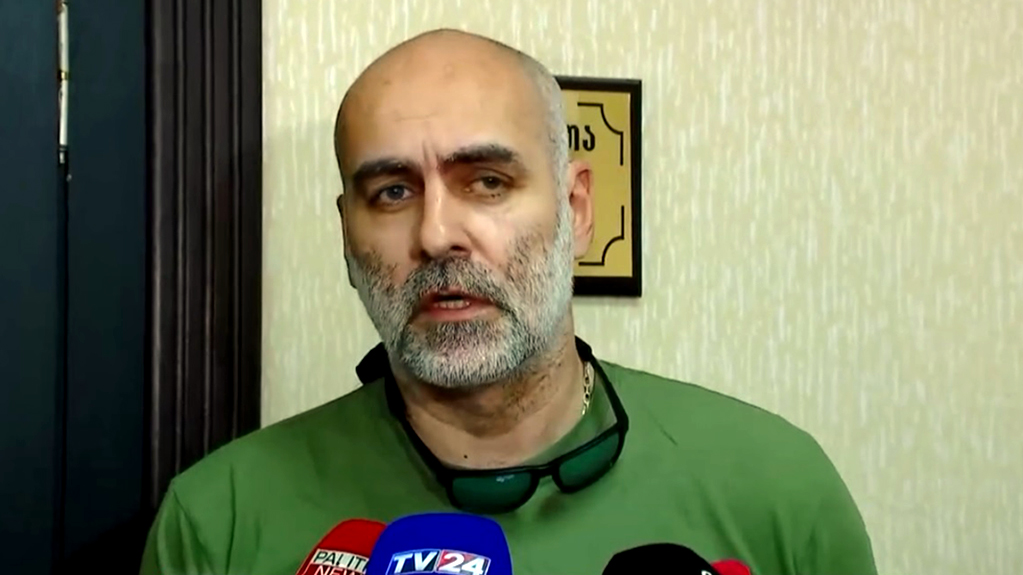The trial of Davit Katsarava, who was illegally arrested and beaten by special forces during a protest against the Russian Law, took place at the Tbilisi City Court. The Ministry of Internal Affairs accuses him of an administrative offense - petty hooliganism and disobedience to a police officer.
News
Two police officers testified at today's trial. One of them, Bidzina Zhamerashvili, stated that Davit Katsarava called the special squad members "Russian slaves," "disobeyed the law," and that the special forces arrested him "at the right moment."
"He said, 'There is a Russian army 40 kilometers away, and why are you standing here, slaves of Russia.' Being called a Russian slave is insulting; many have had family members die fighting them. When the moment was right, he was arrested by the special forces. He did not complain about the policemen. Essentially, the law had an obscene appeal in a place of public gathering. It was against the law," Zhamerashvili said.
The police officers who testified are members of the patrol crew that handed over the beaten Davit Katsarava. According to lawyer Mikheil Ramishvili, no one was present at the place of Katsarava's arrest by the special forces.
After the proceedings, Davit Katsarava stated that the policemen's testimonies were contradictory.
"One of the policemen said that I was also insulting the police, another said that I was cursing indiscriminately. One of them said that I was swearing at 5 o'clock and they arrested me for it at half past six. Both of them said that they took me and put me in a car about five minutes after my abduction by the special forces. In fact, at least 40 minutes passed between my arrest and my transfer to the patrol car.
I said it would turn out that the cops had their dash cams turned off and they wouldn't have any evidence. That's exactly what happened. They gave false testimony, trying to convince the judge that I was swearing and insulting," said Katsarava. He believes that the intimidation of civil activists is an order from the government.
"For me, this is an attempt to pressure and intimidate. With this, this regime is trying to hinder me again, to make me feel that I am in danger. All of this happened after I actively returned to patrolling with Zach of the occupation. This is directly related to the summons to the court, because a month and a half has passed since May 14," said Katsarava.
The consideration of Davit Katsarava's case will continue on July 11. Petty hooliganism and disobedience to the police can result in fines ranging from 500 GEL to 3 000 GEL, or administrative imprisonment for up to 15 days.

Davit Katsarava, leader of the anti-occupation movement, was arrested on May 14. In footage circulated widely, Katsarava can be seen standing a few meters away from soldiers in pre-war attire, addressing them. "The Russians are 20 kilometers away from us, and you have become their defenders. You know what law they signed," Katsarava said before being interrupted by special forces rushing towards him, arresting him, and removing him from their cordon. According to the civil activist, the handcuffed man was beaten on five occasions, including in the car, with deliberate blows to his head and face. The Special Investigative Service has initiated an investigation into the incident under Article 333, Part Three, Sub-Clause B of the Criminal Code, which pertains to exceeding official authority through violence or using a weapon. The offense carries a penalty of imprisonment for five to eight years. While Davit Katsarava has been recognized as a victim, no arrests have been made by the Special Investigation Service thus far.















